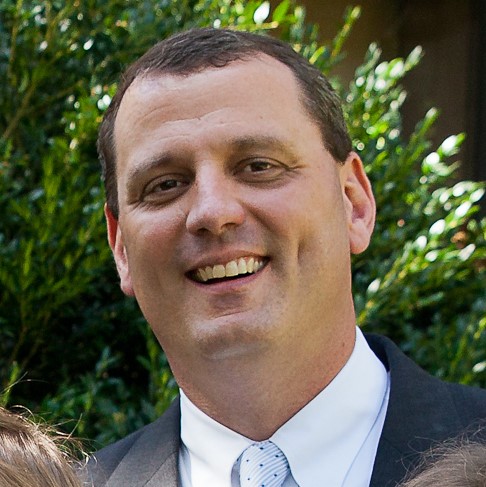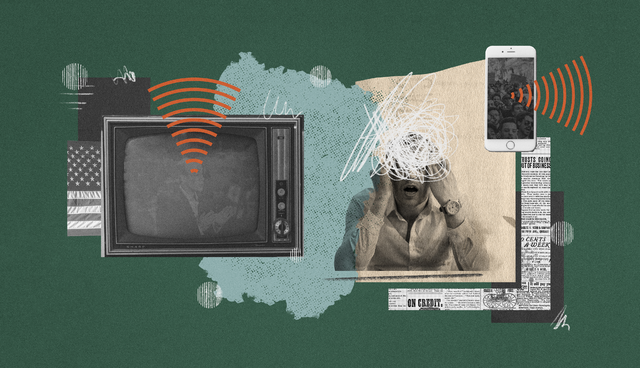We find ourselves living in what one psychologist has called an incubator of anger and anxiety. The temperature inside of this incubator is rather high and seems to be rising.

Many factors are contributing to the rising temperature: a pandemic, economic uncertainty, civil and racial unrest, and a contentious election. As a pastor, I have never seen so much angst and anger among people. In this difficult time we’re living in, what do we need to hear?
In I Peter 5:6-7, Peter writes, “Humble yourselves, therefore, under the mighty hand of God so that at the proper time he may exalt you, casting all your anxieties on him, because he cares for you.” This is God’s message to us in this current cultural moment: humble yourselves.
As we face the incubator of anxiety and fear, in all its intensity, what will be the help for our anxiety and anger? We could go to simple passages that are inspired and true and helpful, like Matthew 6:26: “Do not be anxious about your life…each day has enough trouble of its own.” But as Ed Welch points out, those are helpful for low-level anxiety; we need something deeper in the midst of this intensity.
The bigger and deeper calling in I Peter 5:6-7 is “humble yourselves.” In the ESV it reads: “Humble yourselves, therefore, under the mighty hand of God, so that at the proper time he may exalt you, casting all your anxieties on him, because he cares for you.” Casting is a participle in that verse, which makes it subservient to the fundamental command of humbling yourselves. In short, it means this: You and I won’t cast ourselves upon the Lord unless we humble ourselves. And if we don’t cast ourselves on the Lord, by first humbling ourselves, anxiety will not be removed from us. Our need in this moment, the remedy for anxiety, is to humble ourselves under the mighty hand of God.
That phrase, “under the mighty hand of God,” shows that God is the Ruler and we are not. There is a King and there are servants. There is a Creator and we are creatures. It is a call to see ourselves accurately. In this current moment of anger and anxiety, and particularly as we approach the national election, the Session of LMPC believes the greatest need we have is to humble ourselves under the mighty hand of God.
What will this look like? There are five ways we can know.
First, we must adjust our primary allegiance. You and I, living as citizens of the United States of America, are actually here on a passport from the Kingdom of Heaven. This is not our home; we are exiles and strangers. Our King and our kingdom citizenship inform how we live and move in this land. Scott Sauls, pastor in Nashville, Tennessee, wisely says, “Partisan politics might be the greatest threat to unity in the American Church. And here is the truth: neither the left nor the right has a corner on truth, justice, or neighbor love.” Our unity is in our primary allegiance.
Secondly, we must trust God’s appointees. In Romans 13:1, Paul speaks in a time of very difficult national leadership, saying, “Everyone must submit himself to the governing authorities, for there is no authority except that which God has established.” According to the Word of God, the authorities that exist have been established by God! Humbling ourselves will mean we’re going to trust God as the sovereign Appointer. We will play our part in our own country by voting, but we’ll trust the sovereign Lord’s appointments. Psalm 2 tells us there is a King in Zion, and his name is Jesus. We can trust God’s appointees, because we can trust our King.
Third, we must understand our family. The church is referred to in the Scriptures as the family of God, brothers and sisters, fathers and mothers. And in that family there is much diversity, much like in our earthly families. Tim Keller, recently writing of the early Christian church and its project in the world, said that it was a very unique kind of human community that defied categories because it focused on five elements. First, it was multi-ethnic and multiracial. The book of Acts bears witness to that reality. Second, they were highly committed to the poor and marginalized. Third, the early church was non-retaliatory, marked by a commitment to forgiveness. Fourth, they were strongly and practically against abortion and infanticide. And fifth, the early church was revolutionary regarding the ethics of sexuality. These five positions marked the early church and its project on the earth to bring the Kingdom to bear because Christians were seeking to submit to the biblical authority of truth that emphasizes all of those things. When we too closely and too virulently align ourselves with one particular way, we need to understand humbly we’re going to miss some key parts of God’s Kingdom.
Fourth, we must prioritize love. People of God, how we treat one another is our greatest apologetic to the world that what we believe is true. In John 13:35, Jesus says, “By this everyone will know that you are my disciples, if you love one another.” Loving our fellow believers, who may not think exactly like us politically, is a witness to a watching world of the bonds that we have in Jesus. We, as the people of God, must defy the current cultural lie that disagreement equals hate. And in this moment of anxiety and anger, in this moment of political polarization and angst and division, we, the people of God, more than anyone else on the face of the earth, must show that we can disagree and love. That is one of the greatest fruits of the Christian ethic.
Fifth, we must practice civility. We can disagree with each other without inferring the worst about one another. Ephesians 4:31-32 says, “Let all bitterness and wrath and anger and clamor and slander be put away from you, along with all malice. Be kind to one another, tenderhearted, forgiving one another, as God in Christ forgave you.” Those commands are for us, as citizens of the Kingdom of Heaven. It will mark where we’re from. One writer explains the practice of civility this way: “Just consider for a second these possibilities. Perhaps the conservative you know actually does not support fascism, and the progressive you know actually does not hate the country, and the third-party voter you know is not wasting his vote.” That would be charity; that would be civility.
People of God, we are the ones with the ethic for the world. There is Truth, but on other matters we can disagree in love. “Humble yourselves, therefore, under the mighty hand of God.”
Watch Brian’s Truth on Thursday talk here.
